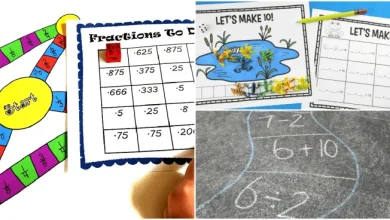Top Language learning activities.

We all know that fluency in English is a profitable investment in yourself that dramatically expands your opportunities. But its development seems to us to be some kind of impossible task. We are afraid that it is “expensive”, “time consuming”, “requires ability”, etc. In fact, linguistic education has stepped far ahead. And now everyone can speak a foreign language. For this, desire and at least one good teaching aid are enough. Let’s talk about what kind of literature will be especially useful to you.
Why is it easy for children to learn a foreign language, but difficult for adults?
You have probably noticed how easily, effortlessly, kids master a foreign language for them. But the process of adult education is like climbing an icy mountain slope. A little distracted, gape, and now you are sliding down again and again. Why is it harder for us than for children?
In part, this is due to the fact that our brains are less plastic than those of toddlers. Accordingly, neural connections for the assimilation of new information are built somewhat worse. However, there is also a psychological side to the issue. Children simply have a different approach to the process of mastering linguistic skills. For an adult, English is a goal, a peak that must be taken. For a child, it is just a means of communication.
Accordingly, kids immediately build a foreign language into the system of their lives. And adults perceive linguistic education as a separate activity. Pay attention to how children behave in a foreign country for them. They immediately strive to play with local children, to communicate without fear of being misunderstood. Unlike kids, adults find it difficult to overcome the language barrier. Even after several years of training in courses, they are afraid to approach the carrier and speak.
By the way, psychologists and linguists have long noticed this difference in teaching children and adults. And many modern programs use precisely “children’s” techniques for mastering vocabulary and grammar. Let’s take a closer look at the techniques that can help you finally speak English fluently.
Also kids using bilingual reading books is helping kids to learn forign languages. There are so many dual language books online and bilingual bookshops which is a great opportunity for both parents and kids.
Books on the study of foreign languages: effective mnemonics.
Agree, the usual memorization of new words is not only boring, but also ineffective. Our memory is so arranged that it very quickly “deletes” individual words. They are not built into the already established system of knowledge, into the general context.
This problem is solved by the memorization technique based on associations. The method was first proposed in the 70s by Stanford University professor Ron Atkinson. In modern books on the study of foreign languages, its improved version is also used. The essence of this technique is that new words are associated with something already familiar. For example, according to consonance, the image that has arisen, etc.
Immersion in context.
Another mnemonic technique is that the new word is maximally immersed in some kind of context. So, in order to remember how the “book” will be in English, you must perform several active actions. For example, repeat a word aloud, write it down, talk about your favorite books, favorite characters, etc.
By the way, the famous English photographer David Bailey learned French in just 17 days in this way. According to him, he daily came into contact with a foreign language for him in different contexts. David ran to music in French, listened to his French friends speak, did grammar exercises and more.
Lady Gee’s book “Get rid of spaces in English. Wreck it! In it, you are offered to perform some fun tasks, casually memorizing new words in their context. So, in order to remember how “paper airplane” will be in English, you need to make it out of paper and let it fly around the room.
Writing essays about yourself.
In the process of acquiring linguistic skills, it is very useful to mix new knowledge with existing ones. And the technique of writing essays about yourself will help you with this. Why about yourself? Yes, because it is easier for us to remember the information that applies specifically to us. Imagine that you met an Englishman and you needed to tell about yourself. Taking into account all the knowledge already acquired, write a short essay. Tell us about your work, family, hobbies, etc.
Write such essays regularly. And you will notice that each time they will acquire new details and meanings. This exercise will also allow you to track the dynamics of learning and notice progress.




